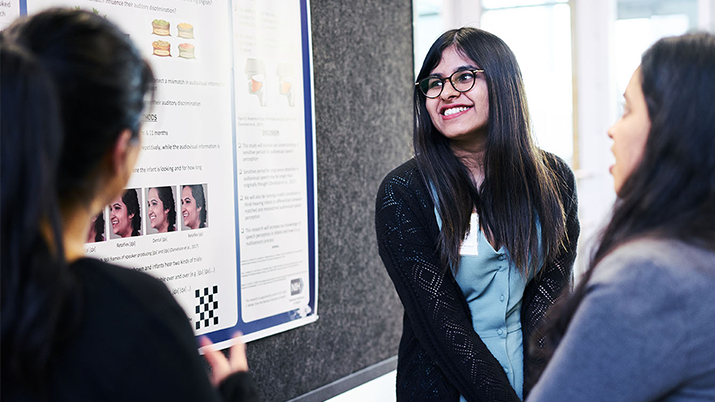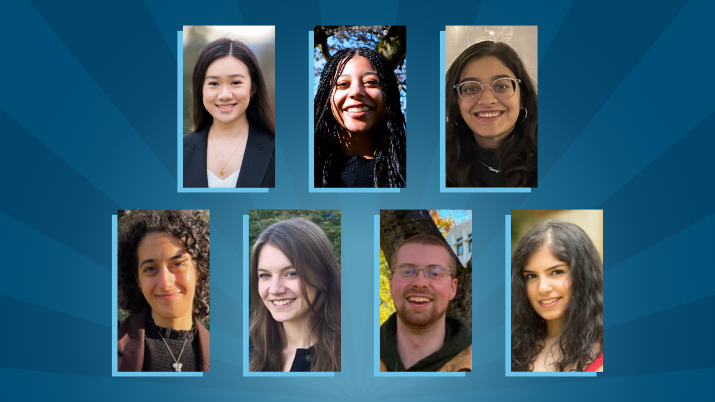Do you get anxious, annoyed or frustrated when you see someone fidgeting? If so, you may suffer from misokinesia–or the “hatred of movements.”
According to new UBC Psychology research, approximately one-third of the population suffer from the psychological phenomenon, which is defined by a strong negative emotional response to the sight of someone else’s small and repetitive movements.
The study, led by UBC psychology PhD student Sumeet Jaswal (she/her) and UBC psychology professor Dr. Todd Handy (he/him), is the first of its kind on the condition.
In this Q&A, Jaswal and Dr. Handy discuss the research findings as well as some good advice for people who may be silently suffering from misokinesia.
How did you become involved in this research?


Dr. Todd Handy
Dr. Handy: I was inspired to study misokinesia after a romantic partner told me that I have a fidgeting habit, which I wasn’t aware of, and she confessed that she experiences a lot of stress whenever she sees me or anyone else fidget. As a visual cognitive neuroscientist, this really piqued my interest to find out what is happening in the brain.
Jaswal: It’s quite an interesting topic to study, particularly since we found so many people are impacted.
What methods did you use to conduct this research and what did you find?


Sumeet Jaswal
Jaswal: Our study consisted of three parts, which involved a total of 4,100 participants. We asked participants to self-report whether they have sensitivities to seeing people fidget, and if so, we then assessed the emotional and social impacts of the phenomenon.
Dr. Handy: We found that one-third of our participants felt sensitivities when they see others fidget. They are negatively impacted emotionally and experience reactions such as anger, anxiety or frustration as well as reduced enjoyment in social situations, work and learning environments. Some even pursue fewer social activities because of the condition. We also found these impacts increase with age and older adults reported a broader range of challenges.
Why do you think people are impacted negatively when they see others fidget?
Jaswal: One possibility we want to explore is that their ‘mirror neurons’ are at play. These neurons activate when we move but they also activate when we see others move. That’s where the term ‘mirror’ comes from because we mirror the movements of others in our brain. These neurons help us understand other people and the intention behind their movements. They are linked to empathy. For example, when you see someone get hurt, you may wince as well, as their pain is mirrored in your own brain and that causes you to experience their emotions and empathize with them.
“A reason that people fidget is because they’re anxious or nervous so when individuals who suffer from misokinesia see someone fidgeting, they may mirror it and feel anxious or nervous as well.’”
We are hoping to examine this more closely in our future research as well as whether there’s a genetic component to the sensitivity.
What advice do you have for people who suffer from misokinesia?
“To those who are suffering from misokinesia, ‘You are not alone. Your challenge is common and it’s real. As a society, we need to recognize that a lot of you suffer silently from this visual challenge, and that it can adversely impact your ability to work, learn in school and enjoy social situations.’”
Dr. Handy: Misokinesia is a widely shared phenomenon that no one has ever really talked about. By starting this discussion, there is reason for hope in better understanding and outcomes.
Jaswal: We also created a website for those who are interested in learning more about the phenomenon. Please visit www.misokinesia.ca for more information
Interview language(s): English (Jaswal and Handy), Punjabi (Jaswal)
This news release was originally published on the UBC News website.



